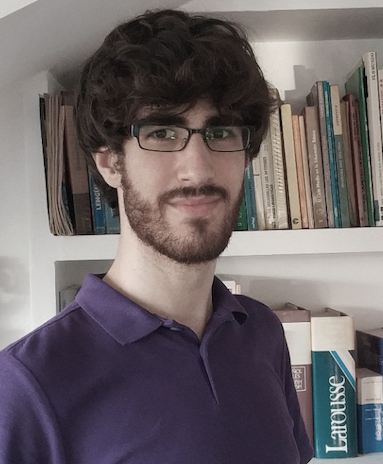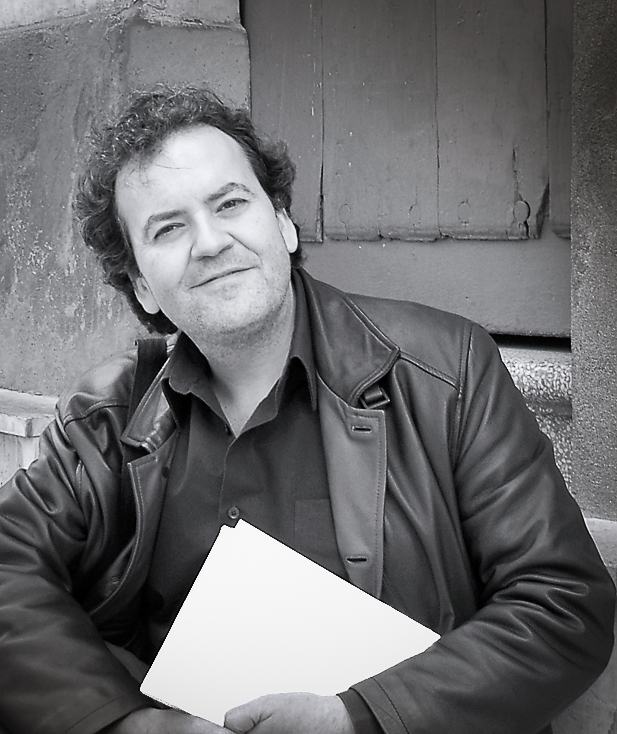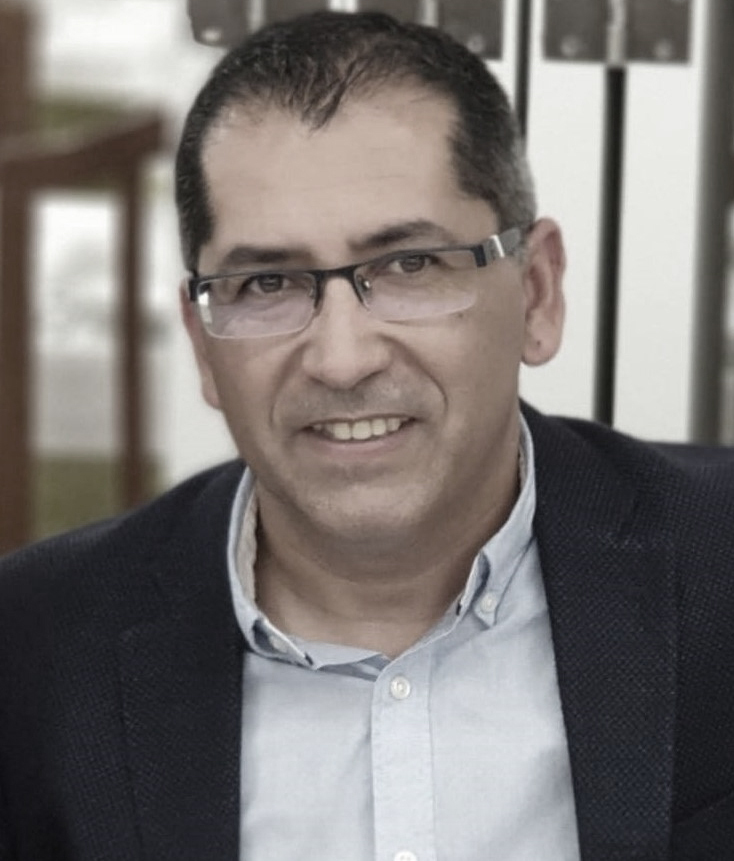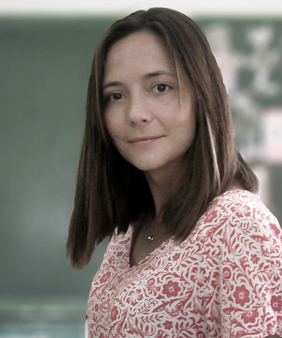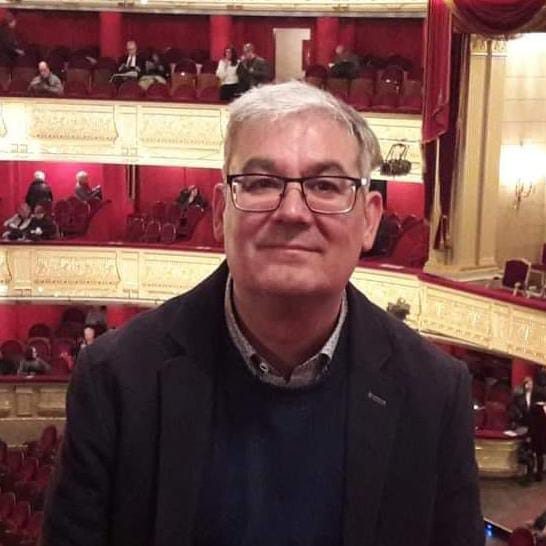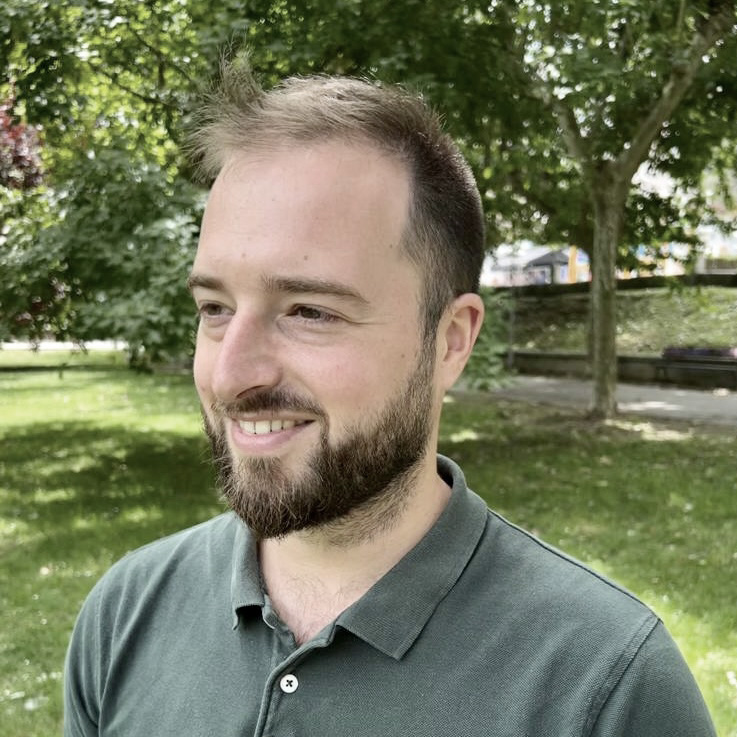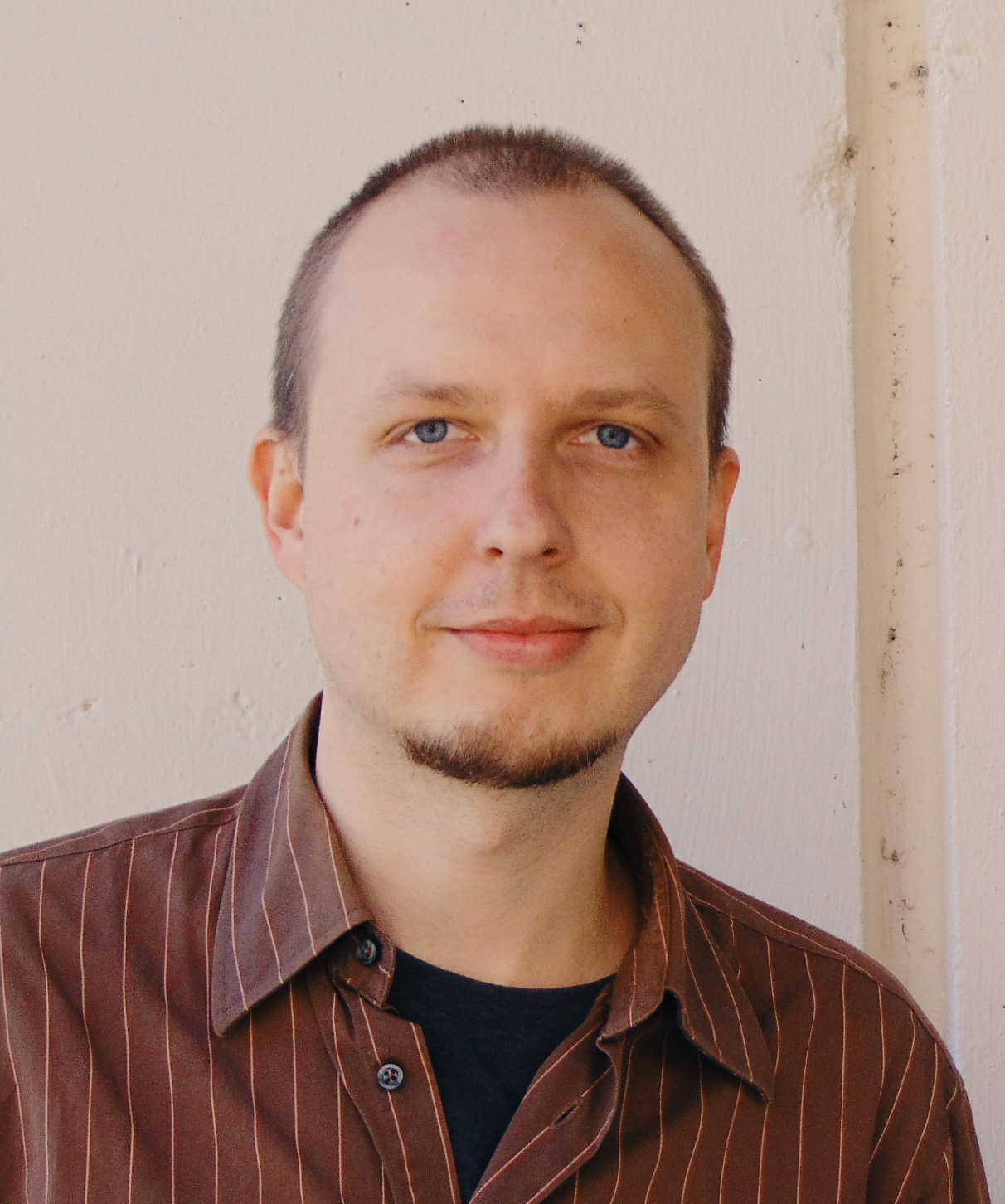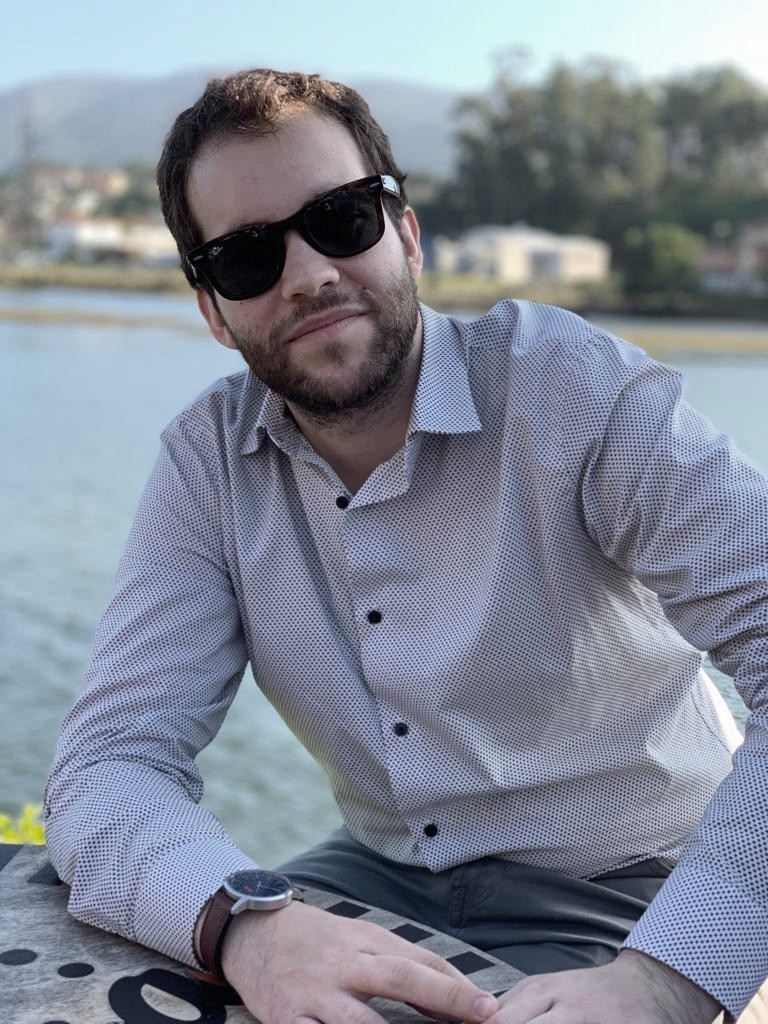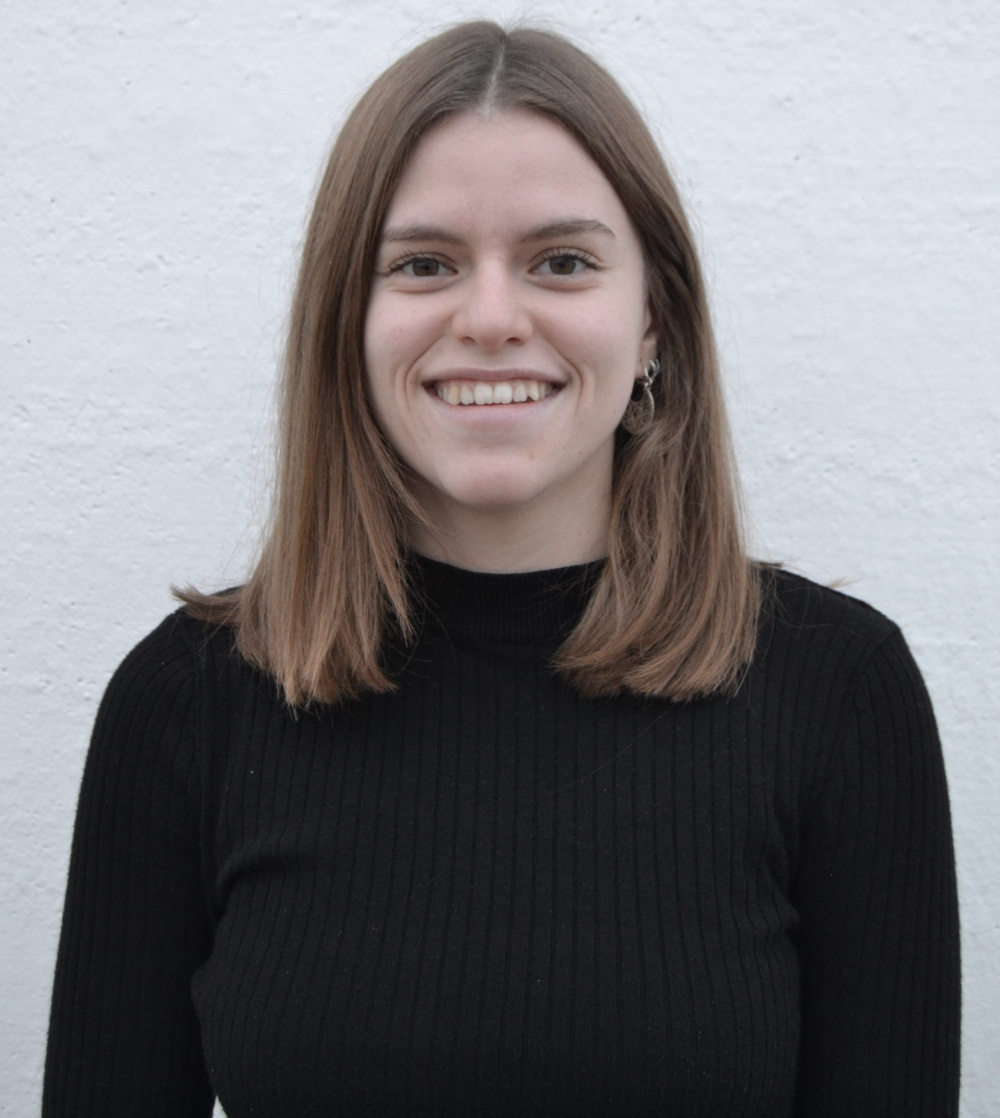Teaching staff
Teacher specialising in Music Education. Graduate in Music, specialising in Clarinet.
Graduate in Music (Flute). Graduate in History and Science of Music. Master’s Degree in Historical Musicology. Doctor in Specific Didactics. Doctor in Humanities. Professor of Music and Performing Arts (specialising in Music History).
Welcome to my virtual academy. At Dos Acordes we believe that the guarantee of a good preparation for competitive teaching exams lies in the trainer himself, who is ultimately responsible for the progress of the course. For this reason, and in contrast to other similar centres which pay more attention to the advertising brand than to the teaching team, I am going to present these lines of introduction.
My experience as a music teacher trainer goes back to the first competitive music exams for teachers, in 1991; a school friend told me that a music academy was looking for a music trainer and I went there, unaware of where that adventure would take me. At that time I limited my field of action to the city where I lived, Vigo, to later work in Santiago, Ourense, Coruña and, finally, León. Nowadays I train most of my students in on-line classes with videoconference support.
I extended my field of action to secondary music in 1999 and seven years later I incorporated the preparation of all conservatory specialities. At present, I continue to prepare people for these three teaching bodies; although I have been called on several occasions to teach infant and primary school teachers, I have not made up my mind… at least, for the moment!
In addition to direct classes, I also live the world of competitive examinations as an author of syllabuses. For teachers I have published the themes (CEP), didactic units (MAD) and, the most successful, practical volume of music education (MAD). For the secondary school teachers‘ corps, the programming and didactic units (MAD) and the old common syllabus (MAD); finally, for the music and performing arts teachers’ corps, I wrote the book on how to carry out the programming and didactic units (Dos Acordes). These texts have undergone several updates over the years, so that I am always up to date with the latest news in competitive examinations – such a long career in this field goes a long way!
As is to be expected (and I think required) in a trainer of candidates for the public teaching service, I have also passed this type of process on two occasions, within the same call for applications. Thus, I am a teacher of Music in Secondary Education (on leave of absence) and of Music and Performing Arts, specialising in the History of Music. Currently, I am a Professor of Music and Performing Arts, specialising in Music History, based at the Vigo Conservatory of Music.
I have experience as a teacher of Primary School (EGB, rather), Infants (in my time, pre-school), Compulsory Secondary and Baccalaureate, Conservatory (Elementary, Professional and Higher) and University Teacher Training College. Currently, I teach at the Conservatorio Superior de Música de Vigo and I collaborate with the Doctorate Programmes of the UPValencia, as well as with the Master of the VIU.
As far as my knowledge is concerned, I have a degree in Music (flute), a degree in History and Science of Music, a Master’s degree in Historical Musicology, a PhD in Specific Didactics and a PhD in Humanities.
Many of my trainer friends ask me why I chose online preparation in addition to face-to-face preparation. I believe that both options are perfectly compatible thanks to videoconferencing. In terms of convenience and price, more and more people are switching from face-to-face to online.
I wouldn’t be able to remember when we started to have virtual support… in any case, it’s been a long time. It all started with a collection of web pages programmed in asp that configured a small virtual environment, more or less ‘home-made’ (at the time, quite an achievement!). Then we incorporated a blog, later we discovered the advantages of web 2.0 and we started experimenting timidly with Moodle and authoring tools such as Exelearning… But I have always been concerned about new technologies and their application in this educational field. In the 2014-2015 academic year we experimented with videoconferencing using the BlueBigButton tool and we liked it so much that we incorporated it into our classes.
We continue researching so that the year you spend with me and the whole Dos Acordes team is as useful as possible. Besides, in these times of changes in the system of competitive examinations, it is advisable to put yourself in the hands of experienced professionals. Are you going to miss it?
Doctor in Psychopedagogy. Master’s Degree in Leadership, Management and Innovation of School Institutions. Degree in Early Childhood and Primary Education. Teacher of Primary Education, Physical Education, Early Childhood Education, Special Education, Hearing and Language and Educational Guidance.
Planning is one of the most important tasks when preparing for a competitive examination. For this reason, in my classes you will have a structured work plan from the very beginning that will allow you to successfully face each of the tests:
For the development of the written subject I will provide you with my own syllabus, but open and with guidelines for your personalisation. We will also carry out questionnaires for each of them and a written mock exam every three months. Each topic contains an introduction and a conclusion, as required by the evaluation criteria of the examining boards, and an outline so that the candidate has a global vision of it and to help him/her to study and memorise it.
In relation to educational legislation, we have taken into account the precepts of the new LOMLOE curricula that are connected to each topic, but the candidate must examine and take into account the specific legislation of the community for which he or she is going to take the competitive examination.
As an added and differentiating value, this syllabus incorporates a series of Annexes specially designed to complete the topics related to the different disabilities: conceptual maps to systematise the treatment of each disability, exposition of the fundamental theories when dealing with educational needs in general, and special needs in particular, as well as a detail of the intervention of the PT teacher in each specific case.
The Support Plan or Didactic Programming together with the intervention programmes or didactic units: for its implementation I will give you materials, guidelines, ideas and orientations, with special mention to the methodology and evaluation mechanisms. We will also work conscientiously on their defence and presentation, by means of online simulations.
If you still have any doubts, do not hesitate to contact us and we will answer you as soon as possible.
Teacher of Early Childhood Education, Primary Education and Therapeutic Pedagogy. Graduate in Psychopedagogy.
Passing the competitive examination is the happy ending of one of the most intense stages of my life. The daily, tireless effort during months of organising, planning, studying and searching for the best ideas in a continuous creative process. The nerves of feeling evaluated. The hope of getting a chance. The certainty of knowing that you love this profession and that this is what you want in life. And finally, the emotion of receiving a ‘yes, you are worth it’. That was 12 years ago and far from being an end, it was the beginning of a double sensation.
On the one hand, the responsibility of occupying a position as a career civil servant, which has pushed me to continue training in a wide variety of aspects, but all of them highly topical: ICT applied to the classroom with authoring tools, the creation of teaching blogs, Logicomathematics based on learning to think, communication skills, emotional intelligence, key competences, methodology based on experiential learning…
And the second feeling is empathy. This is what pushes me to be part of this team, as a trainer, because even today I relive what it means to face a competitive examination and I empathise with those who are starting this long-distance race. Sharing my experience, my work, my training and helping future teachers in any way I can is another driving force in my professional life and I have dedicated the last 9 years to this, combining it with my daily work in the classroom.
Tomás Gilabert Giner was born in the Valencian town of Benigànim in 1968. He began his musical studies in 1981 at the Conservatorio Profesional de Valencia and later at the Conservatorio Superior ‘Joaquín Rodrigo’ in Valencia, studying harmony with Luis Blanes and composition with Amando Blanquer. He holds the degrees of Professor of Piano and Professor of Solfeggio and Music Theory, Harmony and Composition, Music Pedagogy, Musicology and Choir Conducting. He also obtained the prize of honour in the speciality of composition and the diploma of advanced studies from the Polytechnic University of Valencia.
Graduate in conducting, pianist and composer. I am a tenured Professor of Music and Performing Arts by competitive examination.
My instrumental training began at the age of eight, centred on the piano, but from the last years of my professional training I knew that what really interested me was to acquire a broader and more sophisticated knowledge of music, to go further in the search for a global conception that was not so centred on the piano, which led me to study conducting. I am passionate about harmony, analysis and, at the same time, management and dealing with human groups, so studying this discipline was a way to exploit these concerns and to learn enormously through observation, experience and, why not say it, also through mistakes.
I have studied conducting with masters of the stature of Enrique García Asensio, J. E. García Miranda, Aldo Ceccato, Cristóbal Soler, Nicole Corti, David Hill and Philip Lawson, and composition with Fernando Blanco and Fernando Buide, among others. With this background, I decided to focus my artistic activity on choral conducting and I am currently in charge of the musical direction of the Orfeón Terra a Nosa, an emblematic Galician choir that allows me to be active and continue learning day by day.
At the same time, I have never left aside my activity as a pianist, for me the basis of everything. For this reason I collaborate with a multitude of groups as well as with the singer-songwriter Luis Fercán, the latter in a more modern music-related aspect.
The combination of these two visions, analytical and practical, represented in the knowledge and application of the tools and mechanisms of musical composition in the first case and in piano practice in the second, were the key to having been able to pass the competitive examination for the speciality of Musical Language recently. For all these reasons, and now that I am a member of the team of preparers of competitive examinations at the Academia Dos Acordes, I will try to provide what for me are the keys to the different tests that make up the selection process with the meticulous, in-depth, gradual and individualised methodology that is necessary to achieve such an ambitious objective.
Technical team
Dos Acordes is a highly diversified company (publishing books, scores, syllabuses and magazines, record company, teaching academy and cultural consultancy) in which professionals from different specialities work.
For this reason, the management is actively involved with our human team and carries out a continuous task of organisation, coordination and support to the direction of our project: from the decision on what to publish to which trainers should join the team, in which initiatives the firm should be included or in which it should invest its assets.
The administrative team at Dos Acordes includes the administration and logistics departments, which manage the ticketing platform, mailing, enrolment and payments, invoicing, online shop and community management.
In the warehouse we prepare the orders received in our shop, as well as those from our distributors.
We also take care of all the little things that arise on a day-to-day basis. We try to respond quickly to all incidents, but sometimes it can be difficult!
An IT-based company in the 21st century needs a specialist who is able to cope with ongoing IT issues.
As a specialist, he or she must decide, maintain and develop the various components of our infrastructure, both hardware and software, design and maintain our web pages and react to respond promptly to new and continually changing technological requirements.
I have a degree in classical music and a long teaching career. I enjoy composing music and sharing it with others: be it in a concert hall, a film, or a video game. I have composed music for all these platforms and some compositions have been played and received awards at festivals and nominations in the most varied places in the world: from Hollywood to Japan and back, passing through Lithuania, Germany, Belgium, France, Italy, Spain, Portugal… I would like to mention one in particular, received from one of my favourite composers Ryuichi Sakamoto – Silver Award at the Sapporo International Art Festival – Urban Soundscape Competition.
I have been a regular contributor to Dos Acordes for 10 years. I take care of the process of digitally preparing scores so that they meet the standards of editorial music publishing and look professional, clear and efficient. When dealing with clients, I also bring my point of view as a composer and pianist, offering solutions and practical advice so that the final result is optimal.
I am a graphic designer, editor and copywriter. I am present throughout the creative and technical process involved in publishing, from its conception to its subsequent printing and marketing. Since the company was founded, I have been responsible for giving it a visual personality, graphic coherence and quality.
My creative nature also tries to express itself in other fields of design, such as textile jewellery or sewing, in the broadest sense.
I have a degree in Percussion and I am a career civil servant in the body of Music and Performing Arts Teachers. As well as providing support and advice, my role in the company consists of clarifying doubts about the competition phase and keeping users of the Academia Dos Acordes informed of the calls for applications that take place.
I’ll also be here to give you good vibes!
My training as a musicologist is based on advanced music degrees in Historical Musicology and Ethnomusicology, as well as a foreign master’s degree in ‘Historical, Critical and Analytical Disciplines of Music’. I have collaborated with Dos Acordes as a copyist and proofreader for more than five years and, at present, I am the editorial coordinator, text editor and technical advisor.
I have a degree in Translation and Interpreting and a Master’s degree in Audiovisual Translation and Accessibility. Both my training and my professional experience have allowed me to deepen my mastery of Spanish language skills. Thus, at Dos Acordes I work as a spellchecker and proofreader.
Our team of experts in music transcription and sheet music editing
At Dos Acordes, we have a team of highly skilled professionals specializing in music transcription, sheet music editing, and publishing. With extensive experience in the industry, our experts combine precision, musical knowledge, and technical expertise to deliver the highest quality results.
Specialists in music transcription
Music transcription is one of our core services. Our team accurately converts handwritten scores, audio recordings, and paper editions into professional digital formats. We work with industry-leading notation software such as Finale, Sibelius, and Musescore, ensuring that every note, articulation, and musical nuance is faithfully captured.
Professionals in sheet music editing and publishing
Our expertise in sheet music editing allows us to adapt and enhance scores for professional distribution and performance. From selecting the ideal format and paper to meticulous proofreading and layout design, we ensure that every publication meets the highest quality standards.
Commitment to musical excellence
Each member of our team brings expertise in classical, contemporary, and traditional music, ensuring that our music transcriptions and edited scores remain faithful to the composer’s original intent. We collaborate closely with composers, orchestras, and publishers, tailoring every project to their specific needs.
At Dos Acordes, precision and a passion for music define our work. Trust our specialists to provide professional transcriptions and sheet music, ready for publication or performance.
Discover more about our music transcription and publishing services and how we can assist your next project.

